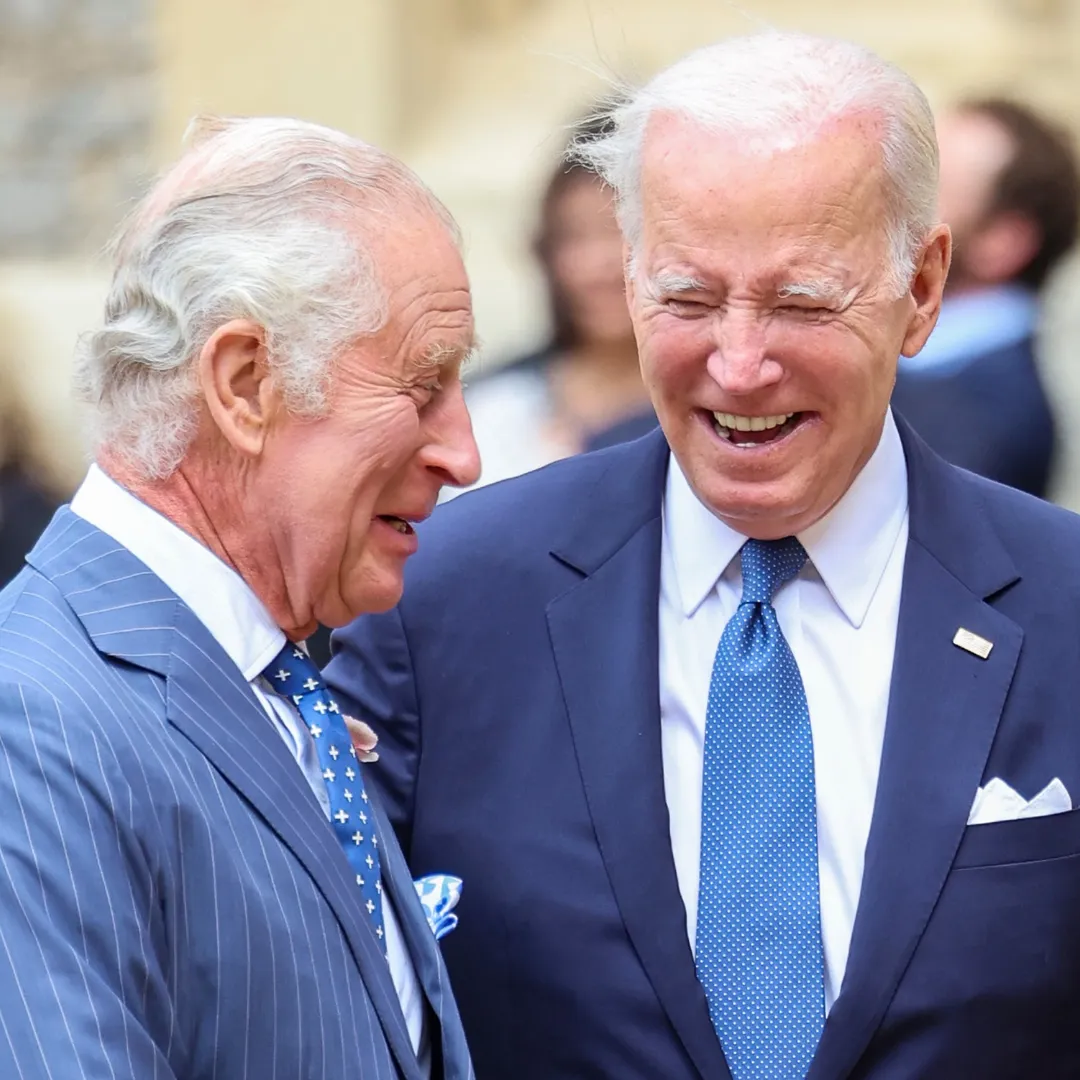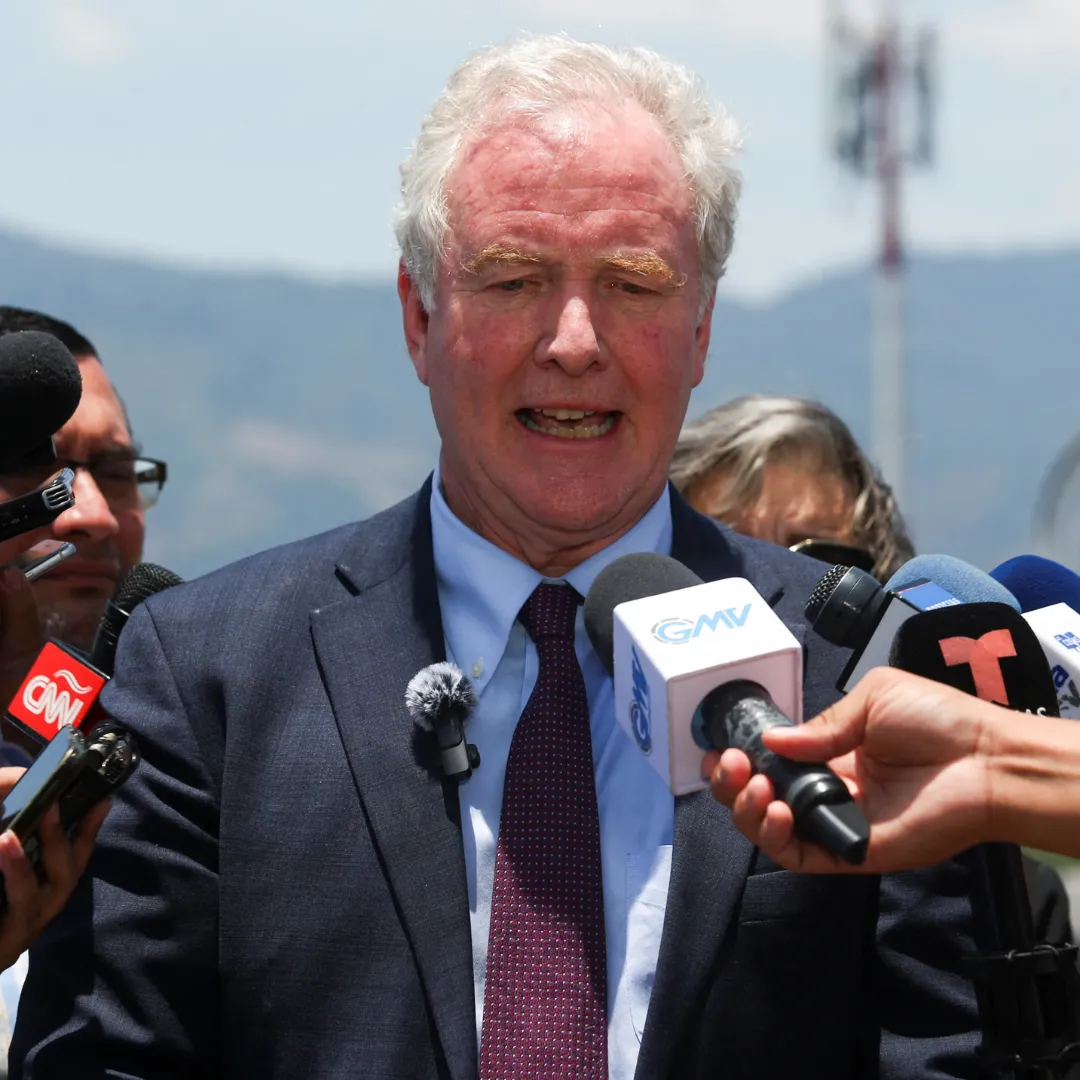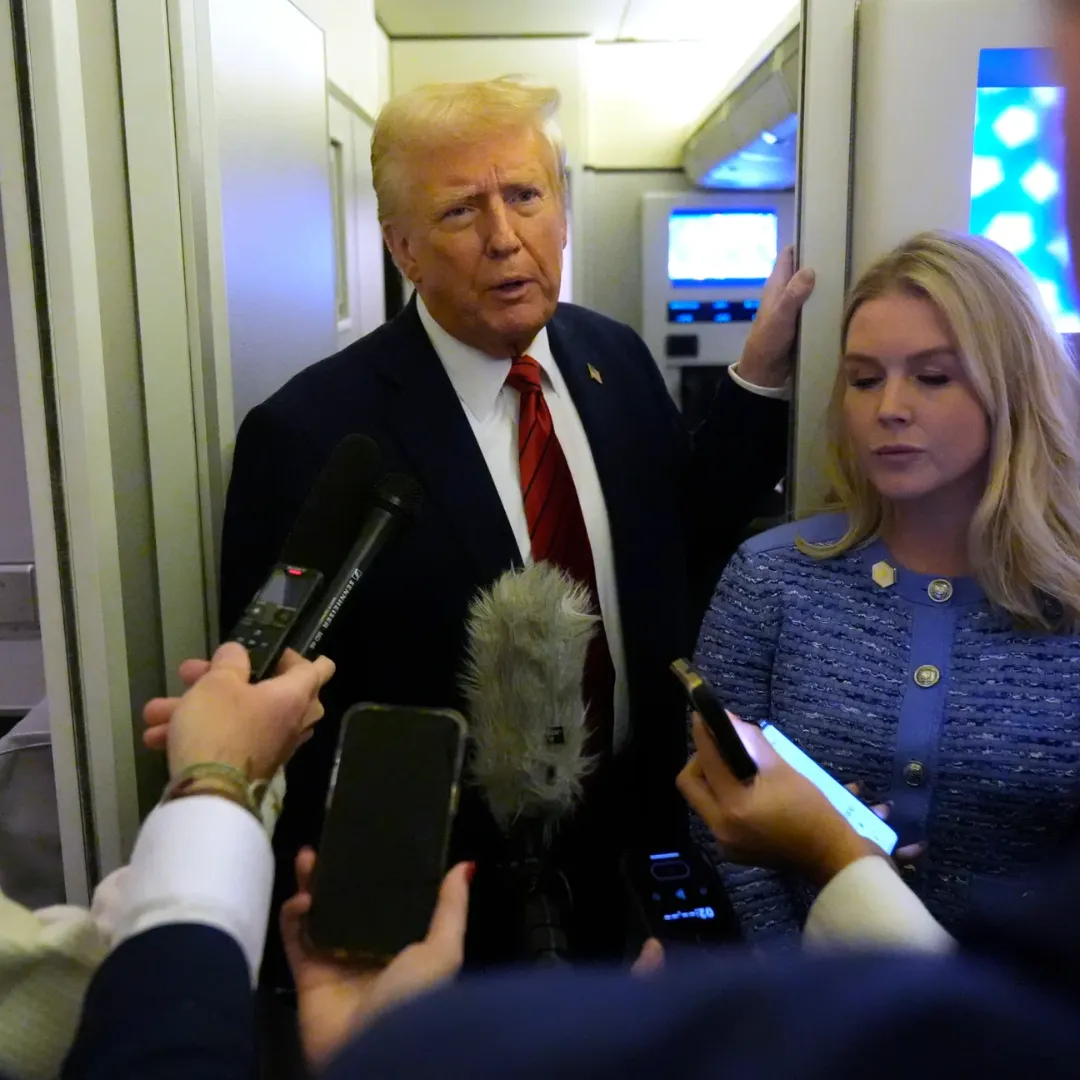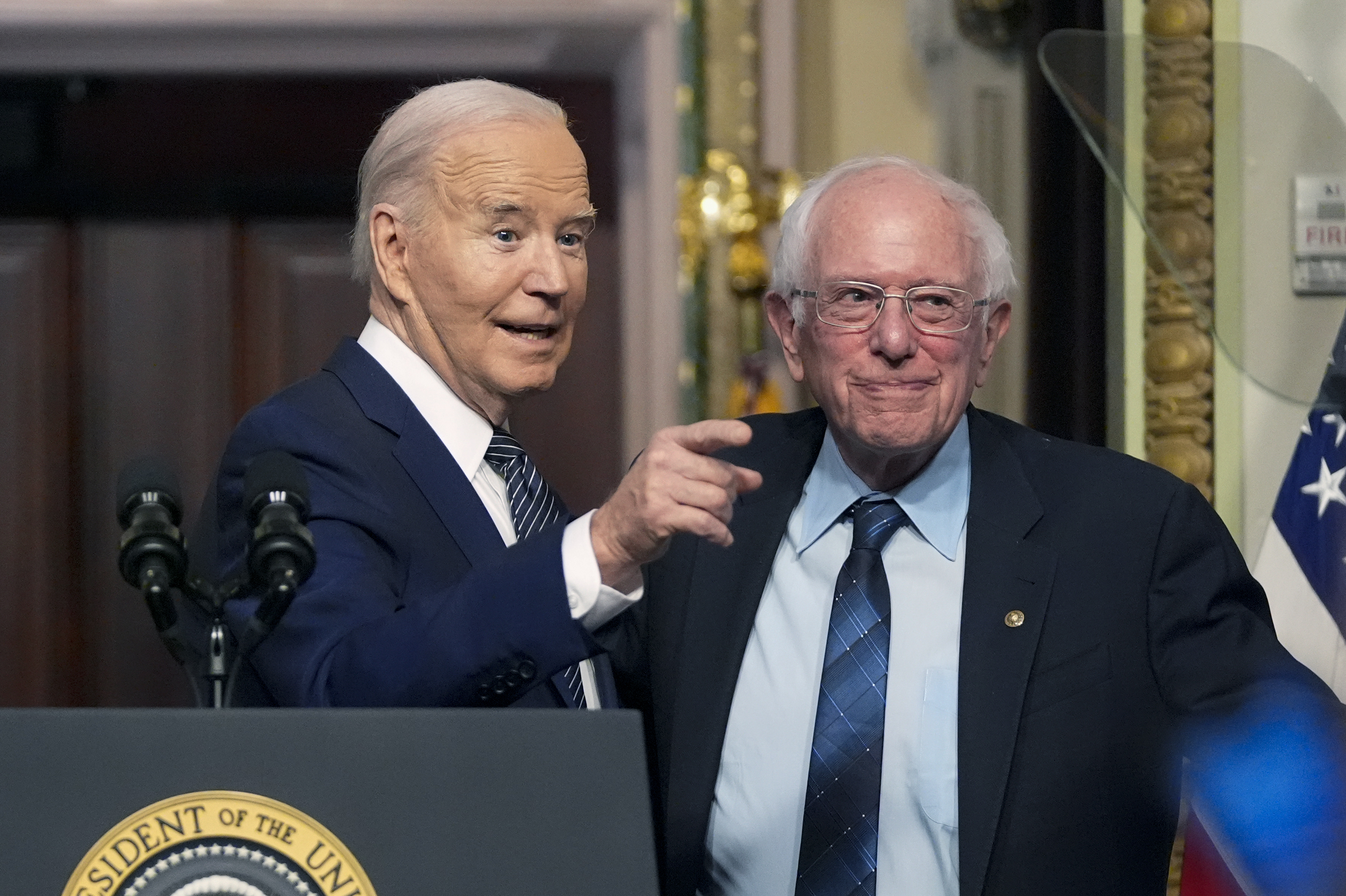
Senator Bernie Sanders, the longtime progressive firebrand and independent from Vermont, has never been shy about criticizing the establishment wings of both major political parties.
But in a Wednesday interview with Fox News anchor Bret Baier, Sanders refused to entertain what he sees as a distraction from deeper issues when asked whether former President Joe Biden should have exited the 2024 race sooner than he did.
Speaking on Special Report, Sanders was pressed by Baier to weigh in on whether Biden’s timing in stepping down as the Democratic nominee earlier that year contributed to the party’s defeat in the general election.
The question referred to widespread second-guessing from political pundits, party donors, and grassroots organizers alike, many of whom blamed the delayed transition to Vice President Kamala Harris as the top Democratic nominee for the 2024 loss to Donald Trump.
“Bret, I’m not going back a year,” Sanders responded bluntly. “I’m not going to relitigate that. That’s not where we are.”
The Vermont senator’s refusal to lay blame on Biden’s timing reflects a broader theme in his post-election messaging. For Sanders, the loss wasn’t about one candidate or one decision. Instead, he believes the Democratic Party faces a fundamental crisis of identity—one that long predates the 2024 election cycle.
“But isn’t that a big part of where the Democratic Party is?” Baier asked, pressing again.
“No, no, it’s not,” Sanders replied, shaking his head. “It’s nothing to do with Biden right now or Kamala Harris.”

Instead, Sanders redirected the conversation toward what he sees as the party’s deeper, structural failure: the perception that Democrats no longer represent working-class Americans.
This has been a consistent theme in Sanders’s decades-long political career, one he has amplified further since the 2024 election loss. “The question is: What is the fundamental issue in politics? Which side are you on?” Sanders continued.
“So, right now, you have massive income and wealth inequality. You have the rich getting richer. Wealthiest people, large corporations control our economy. Billionaires control our political system.”
This critique is nothing new for Sanders, who has consistently argued that both political parties have been too willing to court corporate donors while neglecting the needs of ordinary Americans.
But in the aftermath of a bruising electoral defeat that returned Trump to the presidency and left Democrats scrambling to rebuild, Sanders’s message has found renewed urgency.
“The question is: Do you stand with the working class, with the elderly, with the kids, or do you stand with big money?” he asked Baier pointedly.
Sanders's remarks came after Baier aired a clip from Biden’s recent BBC interview, in which the former president defended his decision to step down late in the election season and promote Vice President Kamala Harris as his successor.
Biden had said, “I don’t think it would have mattered,” implying that his early withdrawal wouldn’t have changed the outcome. He added that Harris was a well-funded, qualified candidate, and that the Biden-Harris campaign infrastructure was handed over fully intact.
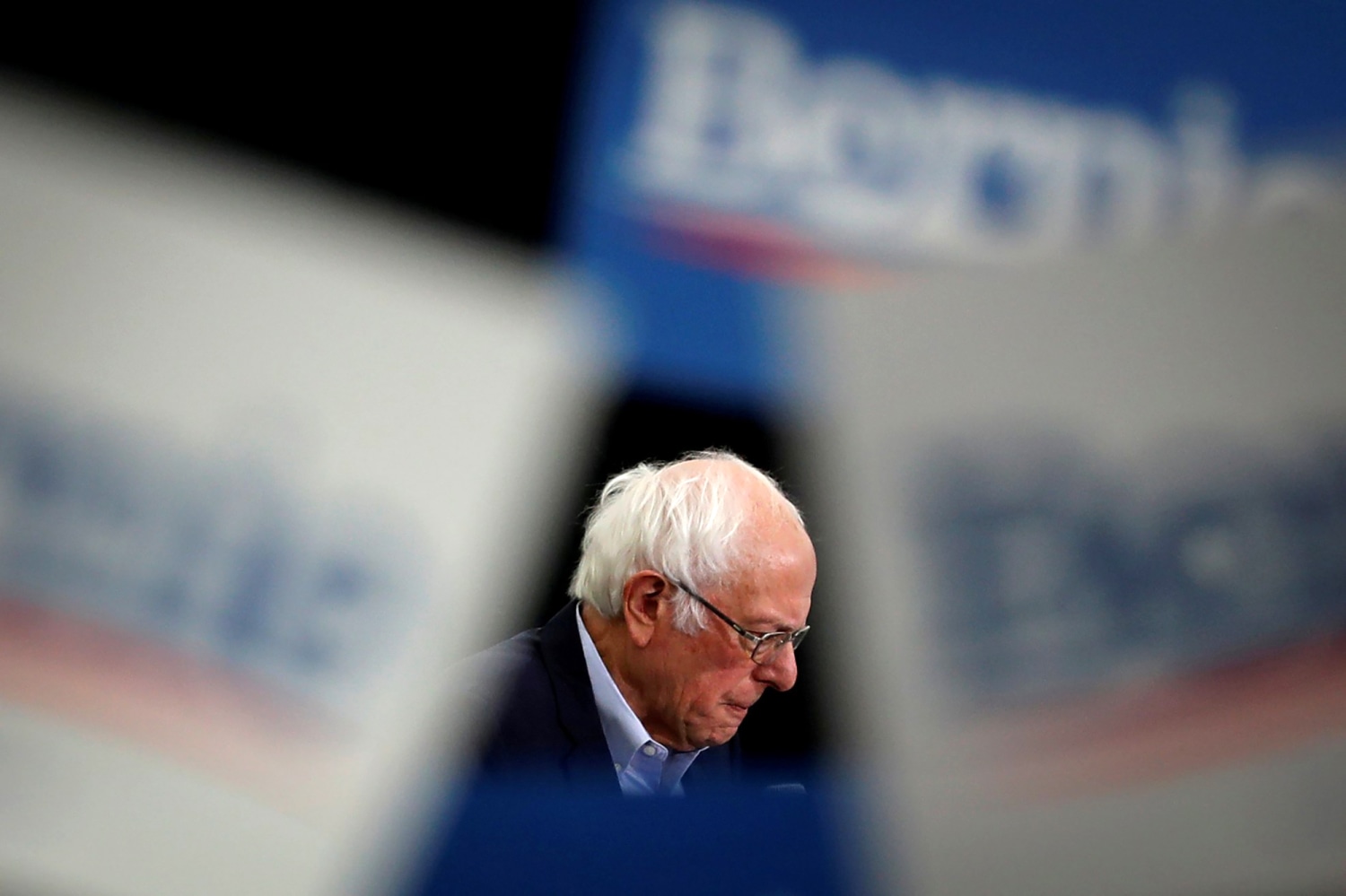
“We left at a time when we had a good candidate. She was fully funded,” Biden said.
Despite these assurances, many Democratic insiders have suggested privately that the transition came too late to mount an effective challenge against Trump’s aggressive campaign machine.
Harris, despite inheriting Biden’s war chest and digital infrastructure, struggled to close the polling gap in key battleground states. Exit polls showed a decline in support from Black voters, Latino voters, and young people—three constituencies that had previously helped carry the Biden-Harris ticket in 2020.
Sanders, however, brushed aside those election autopsy narratives. In his view, Democrats need to stop focusing on political tactics and begin addressing the systemic issues that keep millions of Americans economically insecure and politically disengaged.
He pointed to the party’s struggles to win back voters in Rust Belt states and working-class rural regions once considered Democratic strongholds. “This isn’t just about one campaign,” Sanders said. “It’s about decades of policies that left working families behind.”
Since the election, Sanders has ramped up his public visibility through a nationwide “Fighting Oligarchy” tour alongside Rep. Alexandria Ocasio-Cortez (D-N.Y.).
The tour, which has drawn large crowds in cities from Boston to Des Moines, aims to highlight what the duo describes as “the real crisis in American democracy”—a political system dominated by wealth, lobbying, and corporate interests.
“Whether it's Trump or Biden, what matters most is whether we have the courage to confront oligarchy head-on,” Sanders said during a recent stop in Chicago. “The billionaire class controls more of our economy, more of our media, and more of our politics than ever before.”
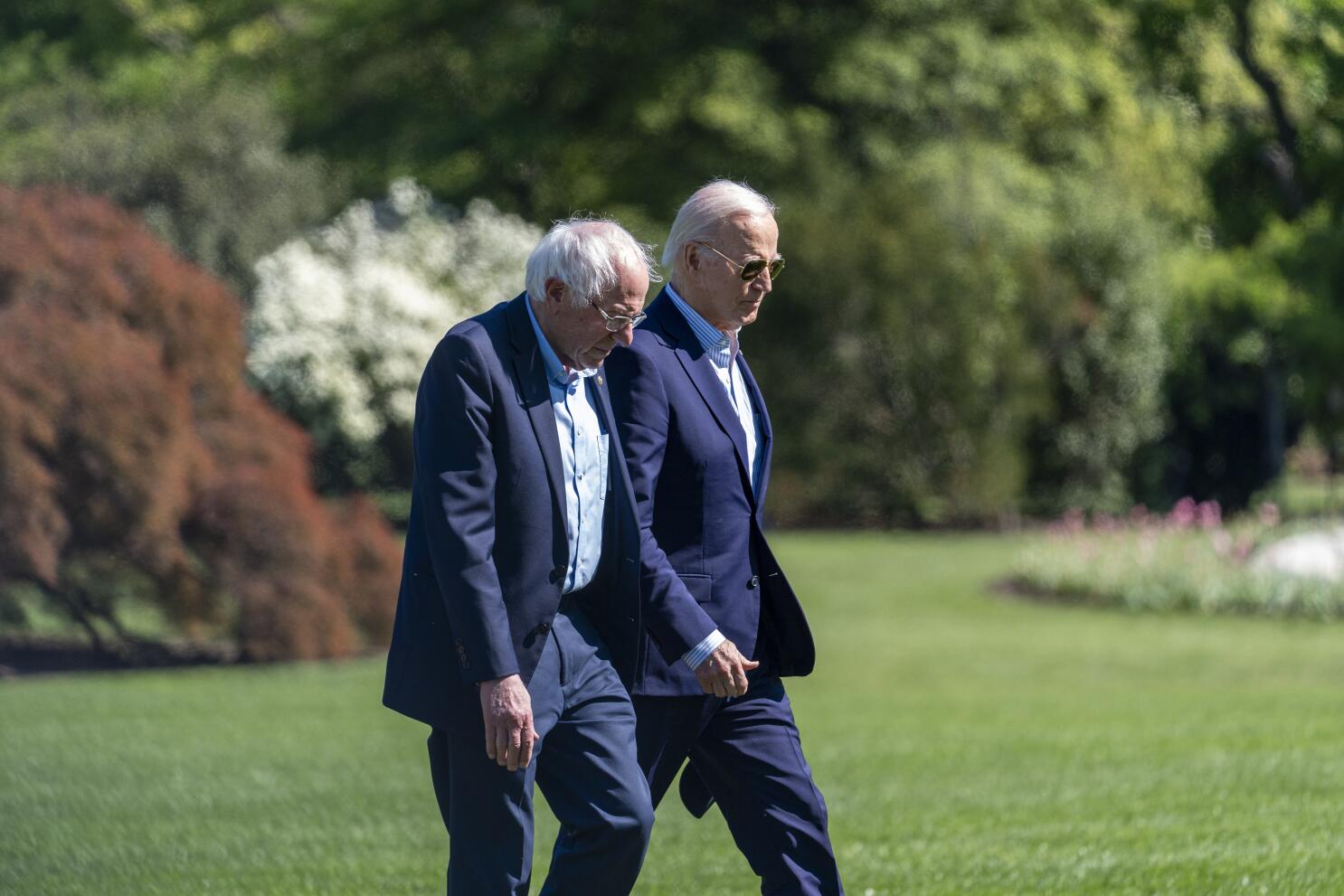
The tour also functions as an organizing platform. Sanders and Ocasio-Cortez have used the events to rally support for progressive primary challengers in upcoming Senate and House races.
Their goal: to reshape the Democratic Party from the ground up, beginning with candidates who reject corporate PAC money and pledge to advocate for policies like Medicare for All, tuition-free public college, universal child care, and a Green New Deal.
For Sanders, who has twice run for president himself, this moment represents a fork in the road for the party. In his eyes, Democrats can either double down on centrist compromises and lose working-class support—or embrace bold, redistributive policies that speak to the economic anxiety felt across class and racial lines.
“We keep asking, ‘Why are people angry?’” Sanders said at one tour stop. “They’re angry because they’re working two jobs and still can’t afford rent. They’re angry because their kids are drowning in student debt. They’re angry because billionaires made record profits during a pandemic while they buried their loved ones.”
The tour, which is expected to continue into the fall, has drawn the ire of more centrist Democrats who believe Sanders is undermining party unity at a critical moment.
Privately, some lawmakers have grumbled that Sanders’s refusal to back down from his progressive platform only deepens the rift between establishment Democrats and the party’s younger, more activist base.
Still, polls show that many of the ideas championed by Sanders and Ocasio-Cortez are broadly popular. A 2024 Pew Research Center survey found that 62 percent of Americans support Medicare for All in some form, while 70 percent back higher taxes on billionaires.
Similarly, overwhelming majorities say they believe corporations wield too much influence in American politics.
In the interview with Baier, Sanders dismissed the idea that Democrats need to re-center themselves to appeal to so-called “moderates” or “swing voters.” Instead, he argued that clear messaging and moral clarity are what will win back disillusioned voters.
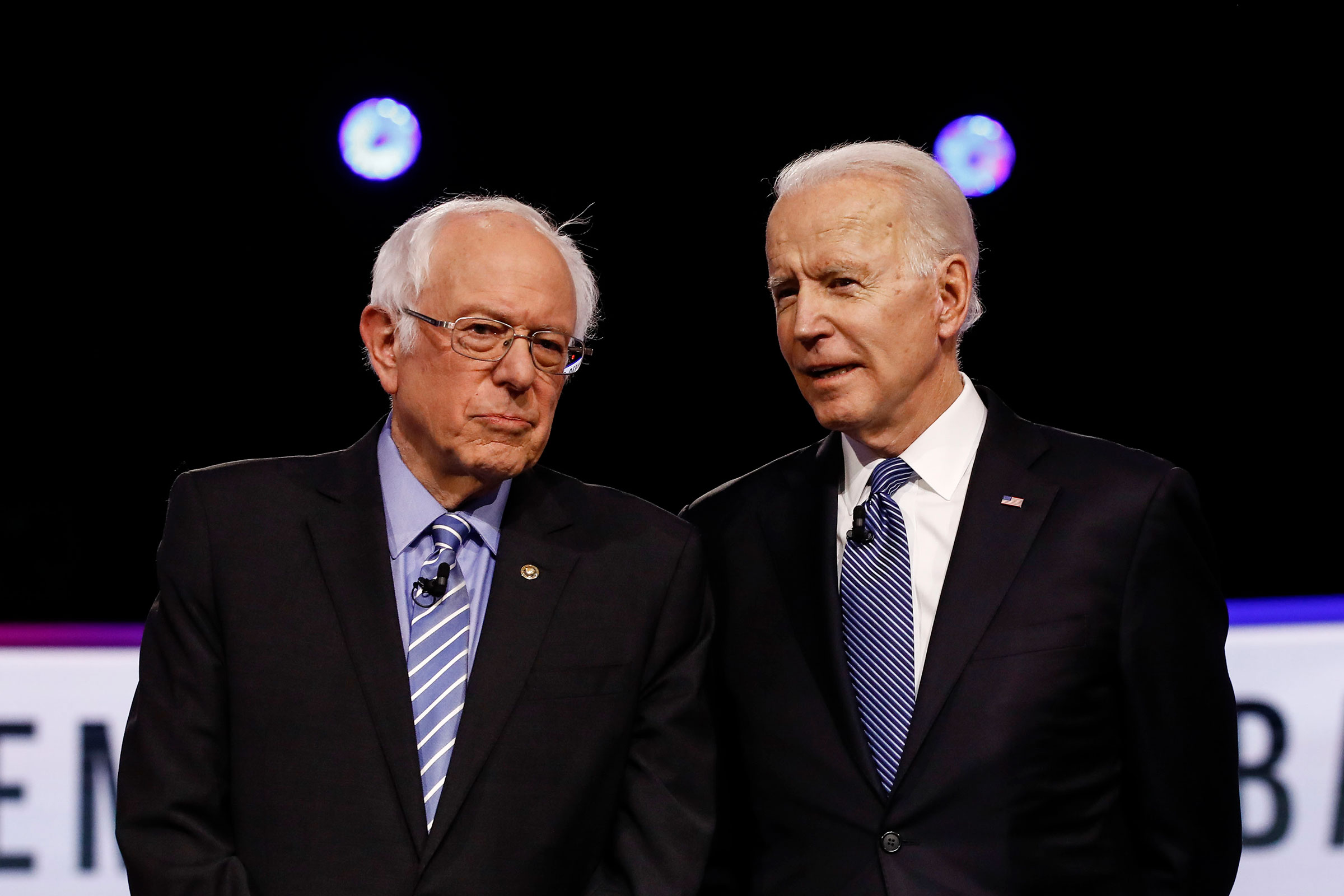
“People aren’t looking for politicians who split the difference,” Sanders said. “They’re looking for leaders who tell them the truth.”
He also warned Democrats against focusing too much on Trump as a boogeyman, saying that fear alone will not be enough to mobilize voters who feel abandoned by both parties.
“If you’re just running on ‘We’re not Trump,’ that’s not going to cut it,” Sanders said. “People want to know what you’re for—not just what you’re against.”
Asked whether he would consider another presidential run, Sanders demurred but didn’t entirely rule it out. “Right now, my focus is on building a movement,” he said. “It’s not about me. It’s about us.”
As Democrats regroup and prepare for midterm battles ahead, Sanders’s words may serve as both a warning and a challenge. For the 82-year-old senator from Vermont, the stakes are existential—not just for his party, but for the very soul of American democracy.
“This country belongs to the people,” he concluded. “Not the billionaires. Not the corporations. Not the lobbyists. And it’s time we start acting like it.”

